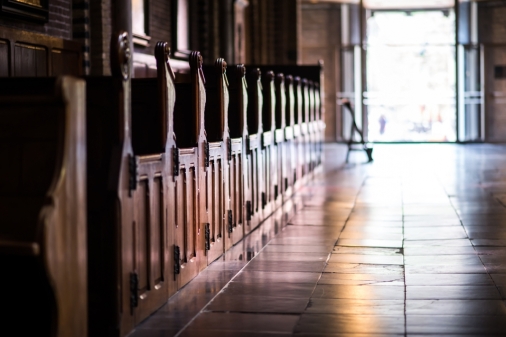
The Church of England’s commitment to Net Zero has been heavily criticised by those who say the practical effects of the policy have been to leave parishioners in freezing churches, especially in rural areas.
Some clergymen have even resorted to illegal boiler installations to aid their congregations, according to a Telegraph investigation.
In 2020 the Church of England General Synod voted in favour of reaching Net Zero by 2030 in recognition “that the global climate emergency is a crisis for God’s creation and a fundamental injustice”.
In 2022 the Church also approved a 'routemap' towards achieving this goal. Rules introduced at that time mean that parishes must now obtain permission from the Church to install a new fossil fuel boiler and must also prove that there are no viable green alternatives.
The Church favours heating solutions such as heat-pumps, electric boilers, solar panels and under-pew heaters. However, these solutions are impossibly expensive for many churches and in any case are ineffective in older stone churches with little or no insulation.
Churches in rural areas are particularly affected and have seen parishioners stay home due to the cold.
The Church has offered £190 million over a period of ten years to help alleviate these costs, however a Telegraph investigation claims that grants from the fund do not cover additional costs.
The Rev Marcus Walker, the rector of St Bartholomew the Great Church in central London was opposed to the Church’s decision to adopt the Net Zero goal. His church’s heating system failed in 2022.
He told The Telegraph, “It’s ridiculous. Some people would rather our churches were empty so long as they were more green.
“They make it so difficult to put in a boiler they hope you’ll just give up. But while they force you through this process, your church is cold and people will freeze, fall sick, and go elsewhere. It’s hard to believe their priority is people coming to God and worshipping him.”
Walker said that at one carol service his legs went numb and he would have collapsed if it were not for the prayer stall in front of him that he was able to steady himself on.
“If I hadn’t had a prayer stall in front of me, I would have fallen face-first onto the floor without any means to stop myself because my legs were just frozen," he said.
Eventually Walker’s church was granted permission to install a new boiler. However, they first had to spend £30,000 on architects just to confirm that there was no green alternative, pushing the church’s finances into deficit, he said.
Other churches have told of elderly parishioners attending services covered in blankets. One church warden went so far as to install a gas boiler without permission, risking disqualification for himself and court costs for the church.
In response to the story, one letter-writer to The Telegraph said the Church of England should provide more funding if it really wishes parishes to modernise their heating systems, suggesting that the £100 million set aside for slavery reparations should be diverted to the cause.
A spokesman for the Church of England said, “Energy bills in recent years have been eye-wateringly high and a source of real concern for our churches who work so hard to serve their communities. Making church buildings more energy efficient is already helping many parishes save thousands of pounds on bills while also making them warmer in winter.
“For some churches – but not all – this will involve a different heating system when they are due for replacement. But our 16,000 church buildings are all different – indeed for many small, older church buildings in rural areas no work would be necessary at all.”













